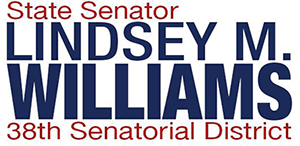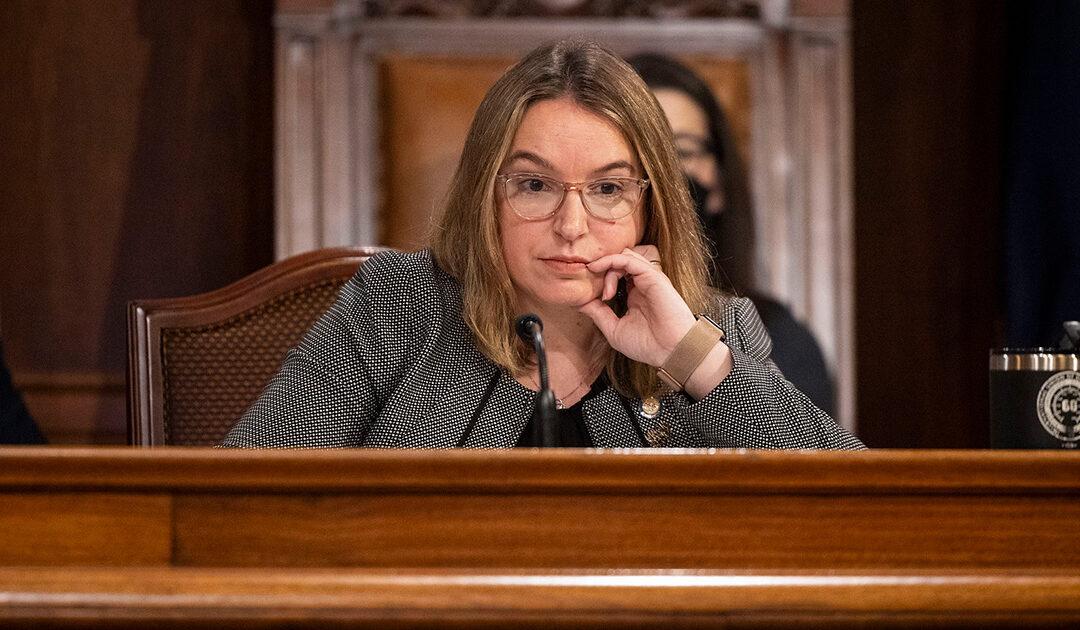Harrisburg, Pa. − February 28, 2024 − Following the Pennsylvania Department of Education (PDE) Senate Appropriations Hearing today, during which PDE struggled to meaningfully answer questions about the Department’s recent approval of a deficient cyber charter school, Senator Lindsey M. Williams circulated a co-sponsorship memo that would institute a moratorium on the approval of new corporate-managed, publicly funded cyber charter schools.
“I was incensed last month when PDE approved a new cyber charter managed by a for-profit, corporate education giant,” said Senator Williams. “This is the first new cyber charter school to be approved by PDE in eight years and its application was deficient on its face.”
By any metric of success, Pennsylvania’s 13 existing cyber charter schools consistently underperform both brick and mortar charters and district schools. According to the PA Future Ready Index, 3rd grade English language arts proficiency is 27.8% lower in cyber charter schools and 7th grade math proficiency is 25% lower in cyber charter schools. Additionally, a study funded by the Walton Family Foundation found that cyber charter students’ lack of academic progress equated to their losing 72 days of learning in English language arts and 180 days of learning in math—that’s an entire school year of learning loss.
Additionally, every one of Pennsylvania’s cyber charter schools has been identified as needing some level of support and improvement under the state’s accountability system. More than half are currently operating under expired charters. And PDE lacks the capacity that it needs to provide financial and academic oversight for these schools.
Despite this, Pennsylvanians already spend roughly $1 billion every year on tuition for our current cyber charter schools, making this one of the leading drivers of property tax increases. Tuition at these privately run, publicly funded schools is not tied to the actual cost of education, and many cyber charters bring in significantly more money than they spend on educating students.
Cyber charters spent nearly $17 million in taxpayer money in 2021-2022 alone on advertising and promotions such as sponsoring local fireworks nights at minor league baseball games, catering, branded giveaways, and gift cards. Despite this waste of taxpayer dollars, over half of cyber charter schools have fund reserves that are equal to a third or more of their entire annual operating budgets.
Pennsylvania’s students and taxpayers are footing that bill.
More than a year has passed since the Commonwealth Court ruled that Pennsylvania’s system of public education is unconstitutional. Students in underfunded and inequitably funded districts are still waiting for long overdue relief. But every new cyber charter school diverts additional taxpayer dollars away from traditional public school districts and the students they serve.
Senator Williams concluded by saying, “Sending millions of taxpayer dollars to a new cyber charter school that is managed by a giant for-profit corporate entity when we have yet to address the school funding court decision is not only unconscionable – it is unconstitutional.
Therefore, I am calling for a moratorium on the proliferation of cyber charter schools until common sense, bipartisan reforms that legislators and school boards across the state have been asking for can be implemented. We must strengthen charter school accountability and transparency, prevent fraud, better serve high-need students, and ensure that neighborhood public schools are not adversely affected. I will continue to fight to secure these broader reforms – but in the meantime, we must stop making the problem worse.”
###

